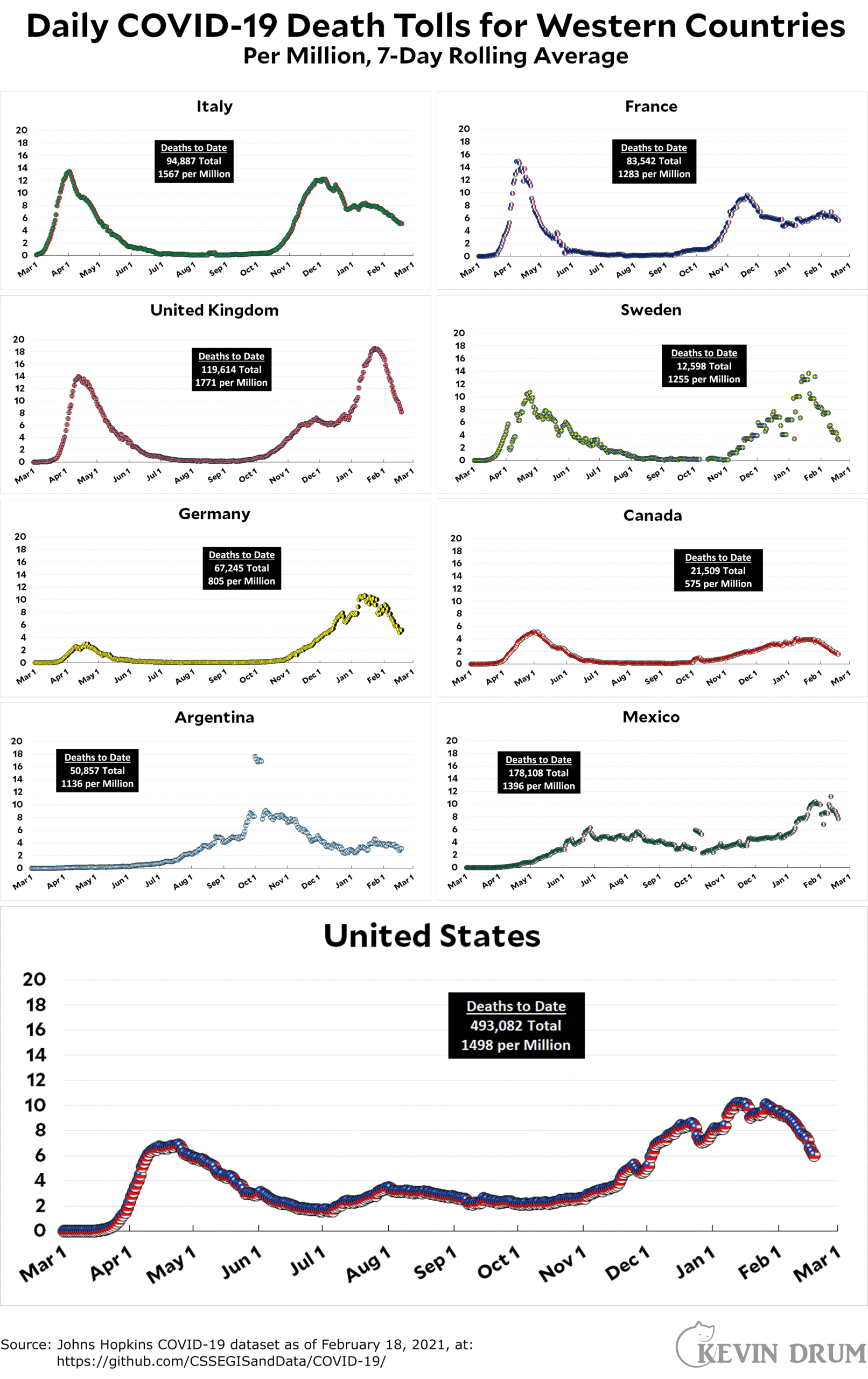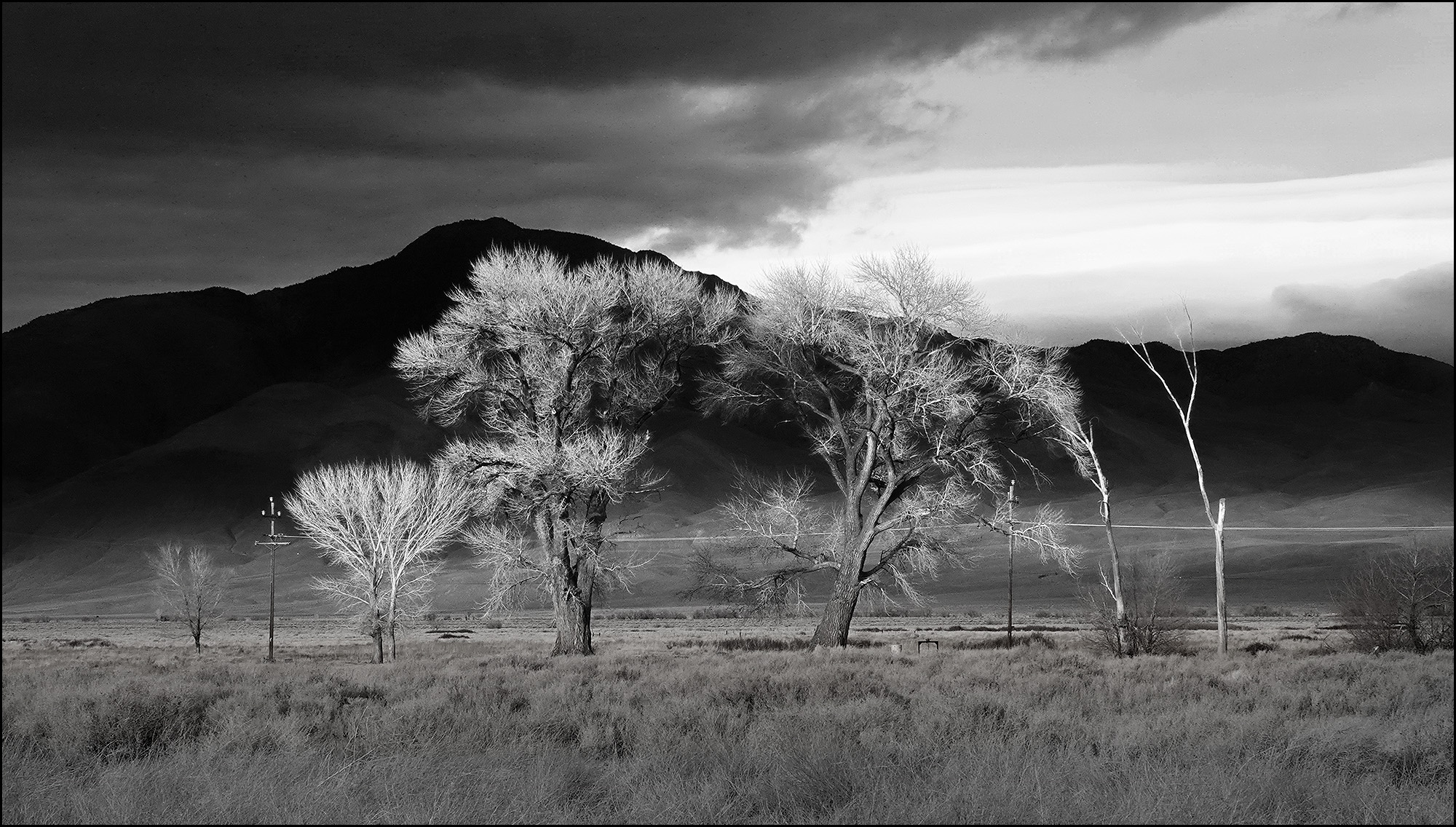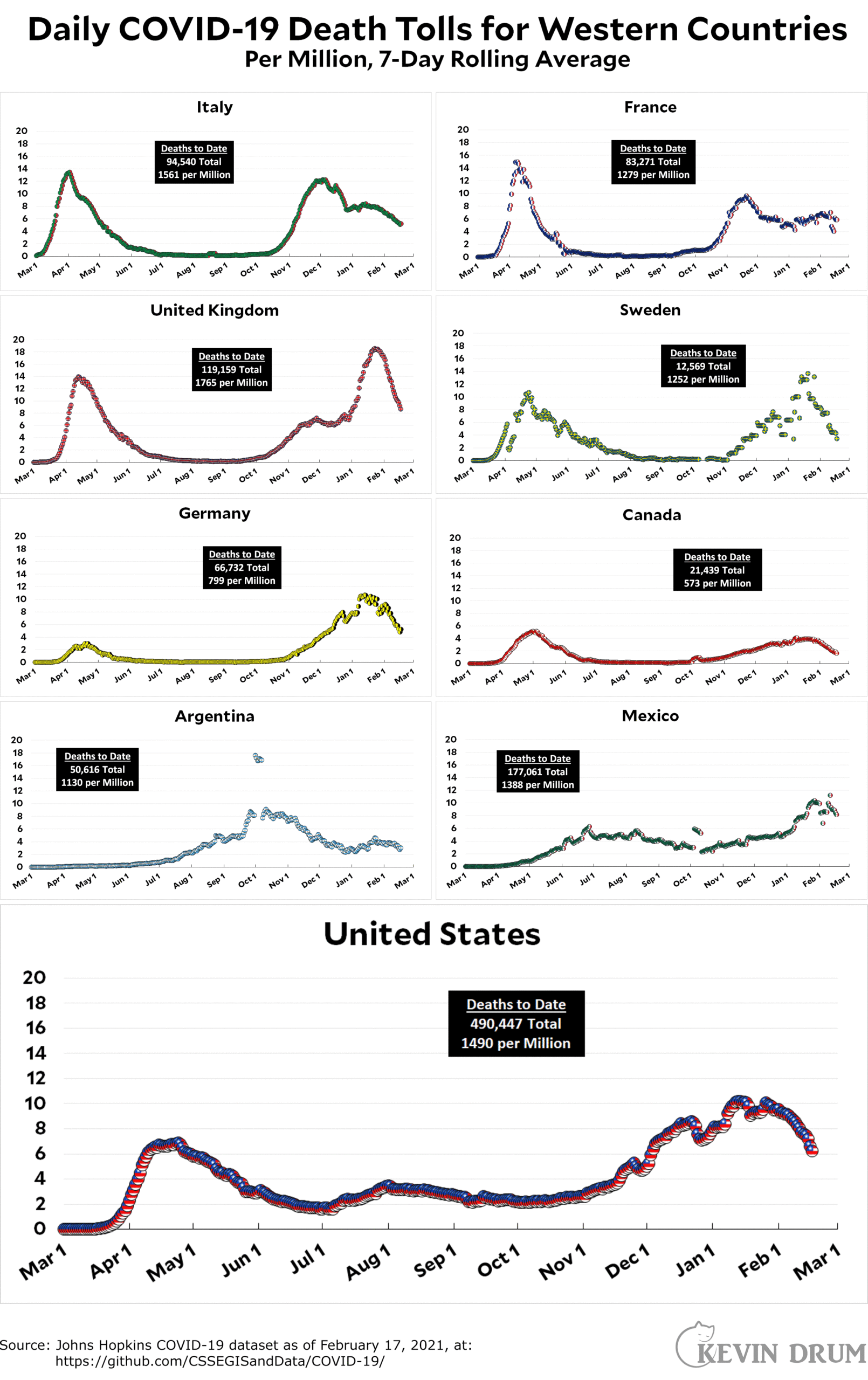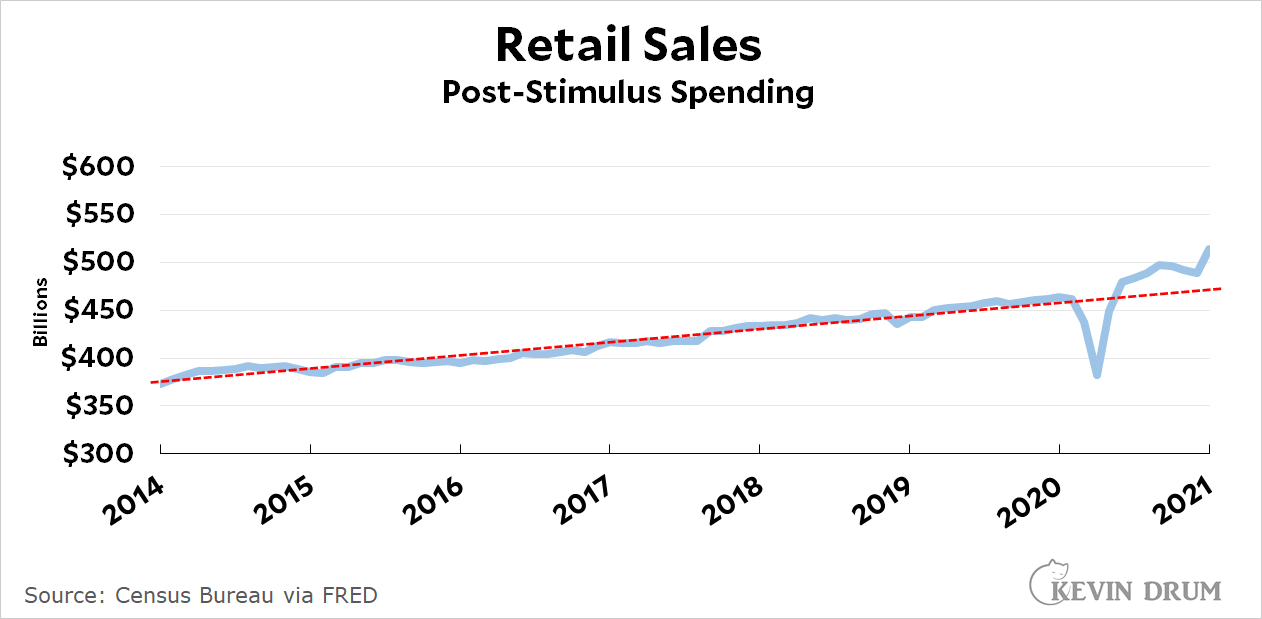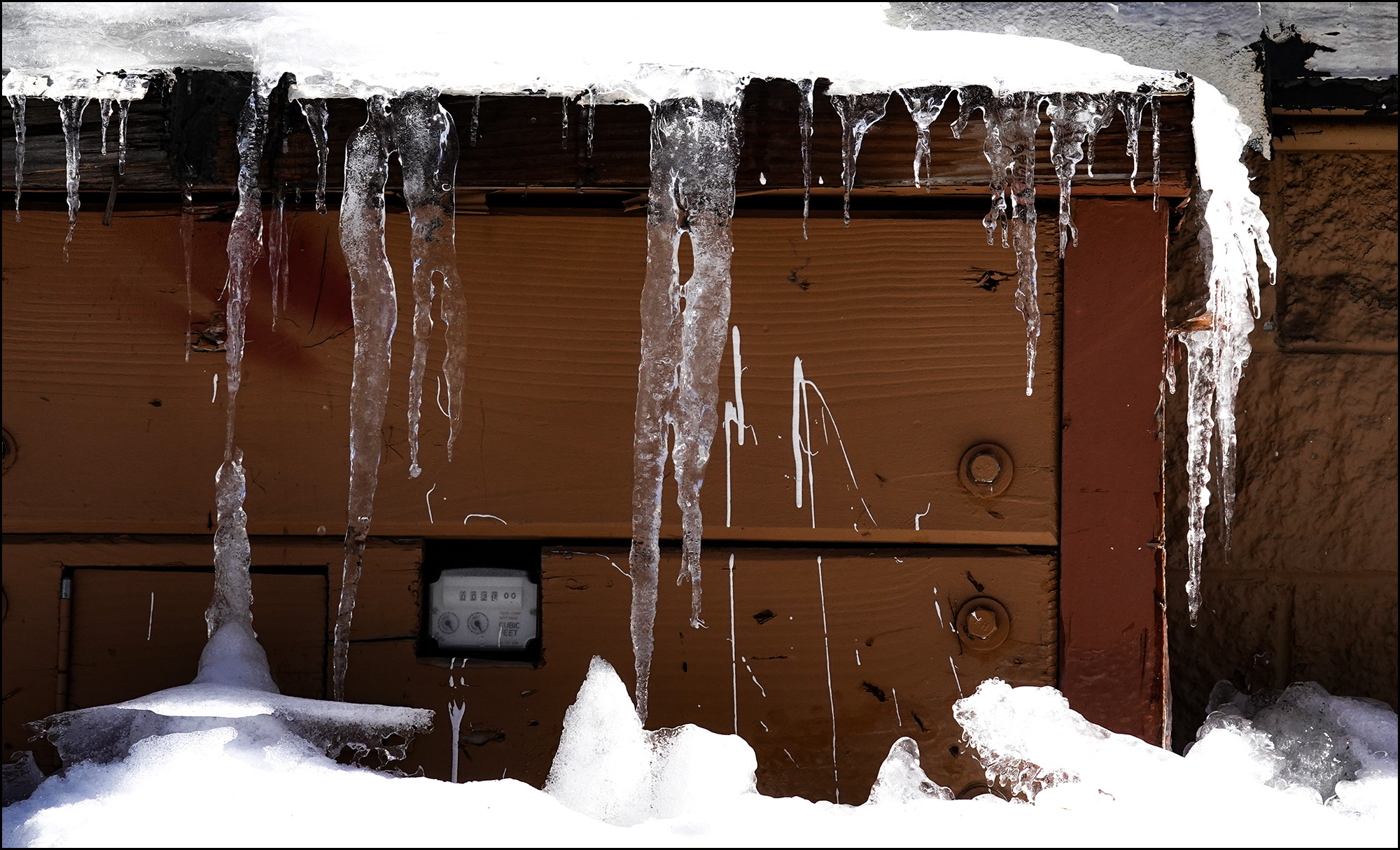There's been guffawing on both sides over the fact that Texas now has its own electricity crisis to match the one California had in 2019. This is because there are a surprising number of people who judge the success of conservatism and liberalism by which state is "doing better." It's a weird little game.
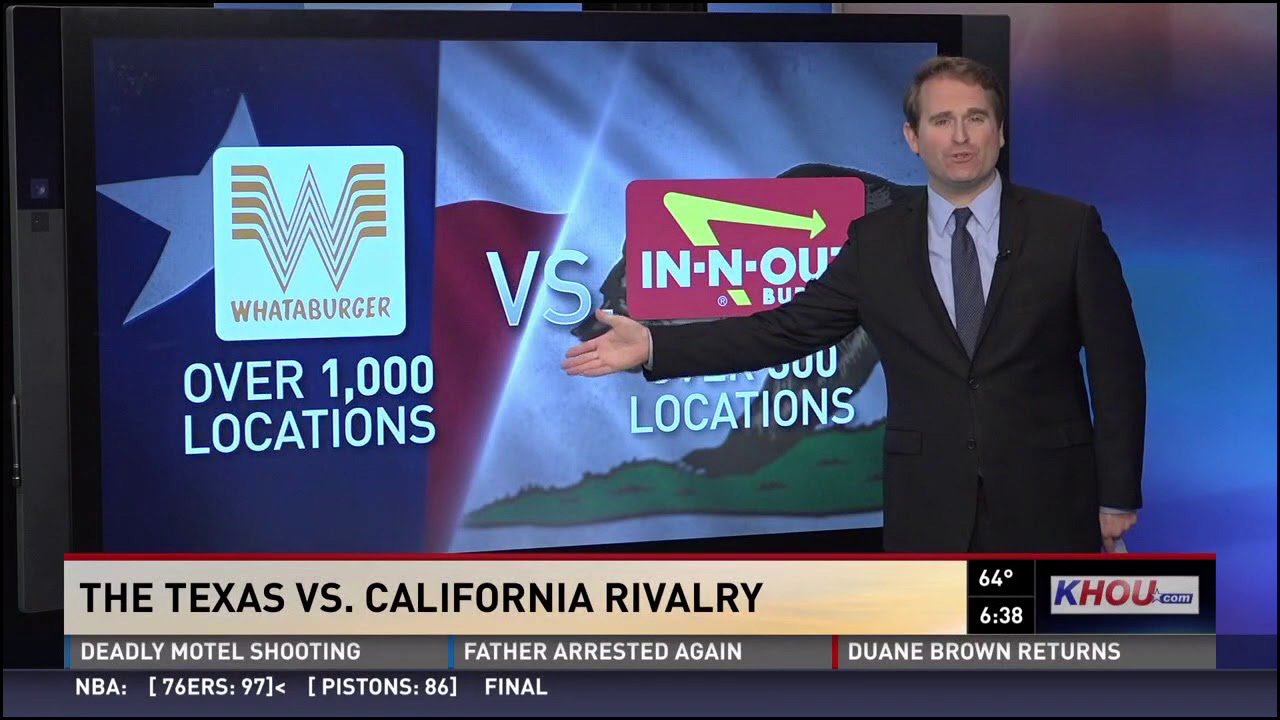
In this case, though, it turns out that both states suffered from the exact same problem: private companies that declined to bother themselves with taking safety seriously.
In the case of Texas, their power operators didn't engineer their systems to fail gracefully in the face of a huge weather event. That's expensive! This left them with only one option when that event finally occurred: they pulled the switch on millions of customers and left them completely without power for days. This was because they didn't want to spend the money to do things right, and Texas regulators let it slide.
California, on the surface, looks entirely different, but is actually nearly identical. The simple story is that the long series of blackouts in 2019 were caused by a manic wildfire season. But why should wildfires cause blackouts? Not because the fires damaged power plants or transmission lines. It was the other way around: faulty transmission lines can cause wildfires. And why can they do that? Because even after a decade of lawsuits, judicial orders, and attention from regulators, PG&E refused to fix its thousands of spark-prone power lines running through national forests. Everyone knew how to do it—better maintenance of transformers, clear cutting areas around transmission towers, etc.—but PG&E just didn't. So when the high winds came, they shrugged and turned off people's power instead. After all, they're already bankrupt thanks to other acts of negligence. They can hardly afford a spate of new lawsuits claiming that their transmission lines destroyed entire towns—as they had the previous year in Paradise.
It doesn't take a degree in engineering to figure out the solution to these twin crises: private utilities need to be regulated in a serious way. They won't spend money on avoiding seemingly rare events unless someone makes them, and that someone is the state legislators, the regulatory commissions, and judges. They've now failed in the two biggest states in the union. Who's next?

